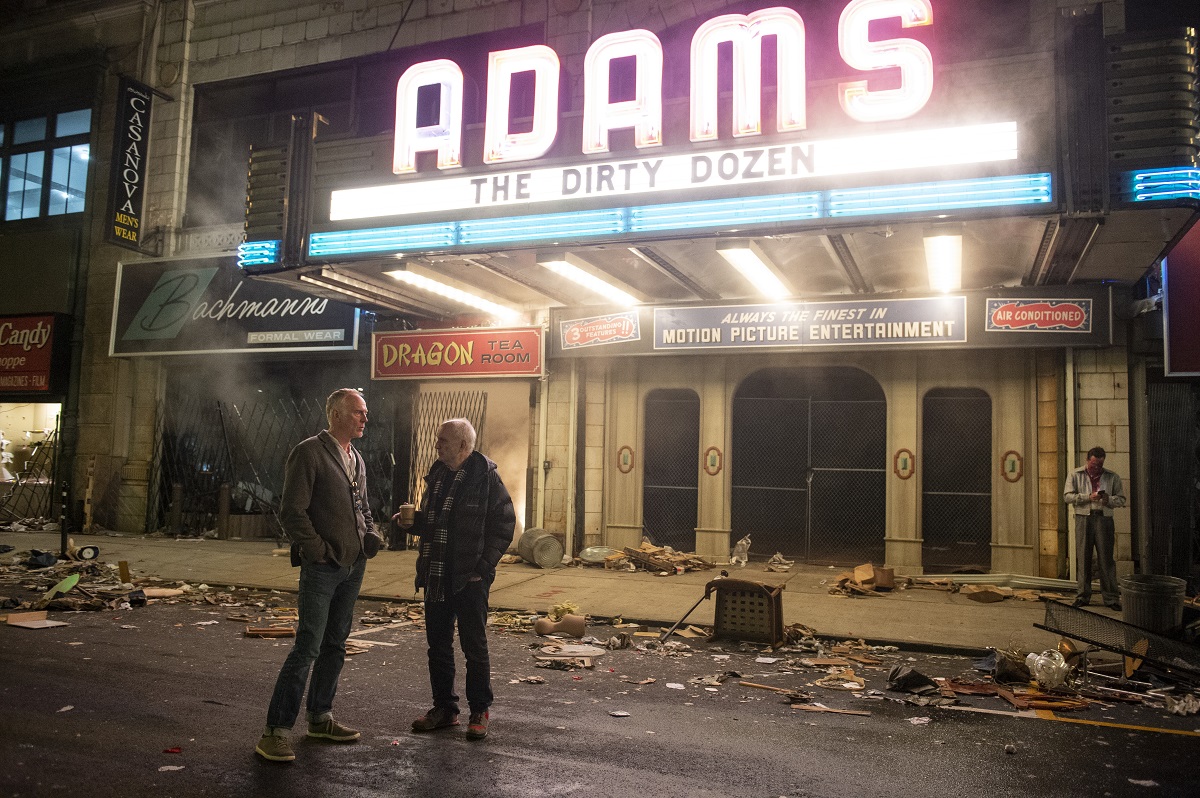It’s been over a decade since the end of “The Sopranos,” but we’re returning to that world this week with the long-delayed arrival of “The Many Saints of Newark,” a film that’s being advertised as “A Sopranos Story.” Directed by Alan Taylor, who helmed nine episodes of the series, and written by series creator David Chase and Lawrence Konner, the film is a prequel to the HBO series, set in Newark in the ‘60s and ‘70s, with a young Tony Soprano played by Michael Gandolfini, the son of James. Tony is an observer through much of “The Many Saints of Newark,” captivated by his uncle, Dickie Moltisanti (Alessandro Nivola), as he navigates an increasingly divided landscape in the Jersey crime scene against the backdrop of the 1967 Newark Riots. Chase called in last week to discuss the legacy of his show, why the film is happening now, and if there are more stories to tell in the Sopranos universe.
How is the film different now than it would have been, say, a decade ago, closer to the end of the series?
Warner Brothers, Toby Emmerich, wanted to do this movie, but I don’t think there was a pressing cry from a lot of people [back then]. That’s what happened. Gen-Z people and Millennials came in and love it. What do I know? From what I hear and read, it seems there’s now this great desire to revisit and go back to those characters. To our advantage, I guess.
With all the history embedded in the show over the years, how did you settle on this specific chapter?
I’m trying to remember. [Thinks.] It might have been something so simple as “Newark.” What pops into your head? “Newark Riots.” I had lived in the Newark area. I lived out of town—about 20 minutes away by car. My girlfriend at the time was working downtown when the riots happened, and I was like 20 or whatever. Me and my friends would say, “I hope they burn that place down, those motherf**kers. Corrupt, c**k-sucking white people.” And then my girlfriend was down there and would say, “They shouldn’t touch that building.” I remembered that. That’s about it. It seemed like a dramatic situation. You know what? The truth is, now that I think about it, I think Larry and I thought, in our most pedological, worst sense, that people needed to hear about this—the riots. They were forgotten. You think we would have come back to them before this. That’s what we both felt. We had both grown up in that period and had what I guess would be called “revolutionary consciousness” at that time. We felt that people needed a refresher course. And it really turned out to be true. There were young, Black people who didn’t know anything about the Newark Riots. We just felt that was wrong and people should know about it.
One of the early reviews labeled it “a deconstruction of the mob movie.” I’m curious if you agree with that and if that was your intent.
[Thinks.] No. That was not my intent. In “The Sopranos” TV show, I guess that was. I can’t say that was … I don’t know. Was it? To try to do a contemporary mob story in the year 2000? Things had changed for the mob, certainly. They were not as powerful as they had been. They had kind of self-destructed in a way. In this case, I wouldn’t say I deconstructed. However the story went, that’s the way it went. It wasn’t conscious “Let’s put this up there for people to see.” It’s not what that was.

Alessandro was on Twitter the other day talking about “Raging Bull” and how that impacted his performance. Were there other films that impacted this one for you and can speak about how “Raging Bull” impacted it?
I don’t know. What I do know is “Raging Bull” is one of my top five films. It’s probably my favorite Scorsese film. So whatever is in there came a long time ago. I wasn’t aware. I didn’t say, “Let’s do that Raging Bull thing.” Actually, when I saw “Raging Bull,” I was working on a feature script at Universal. And I went to see “Raging Bull” and I sat there, and I loved it, and I thought, “That’s the thing to do. We’ll make this film a comedy.” That’s how I saw “Raging Bull.” There’s always something comedic in a strange way. I’ve internalized a love for that kind of absurdity.
I was surprised at how funny the new movie is at times—well, not surprised, reminded how funny the show could be.
I’ve said it before—I didn’t know if the show was a drama or a comedy, and I don’t know why I should. It was what it was.
By the end of the series, with all the stories and references in the show, how much back story or history of characters like Dickie Moltisanti did you already know, if any?
None of it. Only what you saw and heard. People would say “Dickie was his mentor” but that was it. It seemed like he could be a great character. And that’s why Larry and I picked him.
Why didn’t you direct this project?
I was slated to direct it but there were health issues.
Do you think there are other stories in this history or possibly even the future to tell? Are you interested?
The answer is of course there are more stories. My interest? Sometimes it’s very strong, sometimes it goes away. I just don’t know. We’ll see how this experience affects me kind of long-term and see what we want to do. I would love to work with Terry Winter on a Sopranos script.












